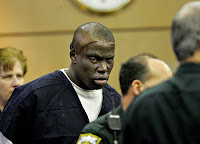
President Obama has not made significant progress in his plan to infuse federal courts with a new cadre of judges, and liberal activists are beginning to blame his administration for moving too tentatively on what they consider a key priority.
During his first nine months in office, Obama has won confirmation in the Democratic-controlled Senate for just three of his 23 nominations for federal judgeships, largely because Republicans have used anonymous holds and filibuster threats to slow the proceedings to a crawl.
But some Democrats attribute that GOP success partly to the administration's reluctance to fight, arguing that Obama's emphasis on easing partisan rancor over judgeships has backfired and only emboldened Senate Republicans. Some Republicans contend that the White House has hurt itself by its slow pace in sending over nominations for Senate consideration. President George W. Bush sent 95 names to the Senate in the same period that Obama has forwarded 23....
The delays are having a ripple effect in federal courts, where caseloads continue to back up, said Senate Judiciary Chairman Patrick J. Leahy (D-Vt.). Currently, about 90 judicial seats -- about 10 percent of the total -- remain vacant in appeals and district courts.
The White House predicts that nominations and confirmations will pick up soon. "The administration has been working closely with members of Congress to identify a set of uniquely qualified judicial nominees with diverse professional experiences," said Ben LaBolt, an Obama spokesman. "This process has been bipartisan and we have made every effort to make confirmation wars a thing of the past."
But liberal activists argue that Obama needs to quicken the pace, partly for political reasons. "It is incumbent on the Democrats and the White House to push as hard as they can to confirm judicial nominees, given that next year Republicans will make an all-out effort to block candidates as a means to gin up their base before the election," said Nan Aron, president of the Alliance for Justice, an advocacy organization.
Analysts say that unlike Bush, who saw judicial appointments as a way to advance a strict view of the Constitution, Obama has not sharply defined his judicial philosophy. Eric Posner, a professor at the University of Chicago Law School, said that Republicans consider the federal courts crucial to furthering their policy aims by overturning current law, but that Obama is among Democrats who view court appointments mainly as a means of defending the legal status quo.
The State system on the other hand is chugging along. John
Kastrenakes was sworn in last Friday by Judge Moreno.
Grey Tesh has all the details here, including speeches by Ryon
McCabe, Judge
O'Sullivan, Andrew
Lourie and Michael
Cornely.





